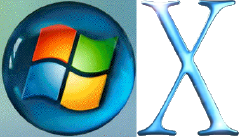Tag: Symantec
More than half Android anti-malware apps insufficient, warns study
Knowledge is power when it comes to online security
Forewarned is forearmed when it comes to protection against online security threats. This is why Symantec Website Security Solutions has created an easy-to-follow Malware Infographic to raise awareness about the hazards posed by malicious software; and to provide tips to avoid the pitfalls.
Kids search for "sex", "porn" and "YouTube" in 2009, according to Symantec.
Security software company and owners of Norton Anti Virus Symantec have revealed the far-from-innocent terms that youngsters aged below 18 have most searched for in 2009. Tracking the terms used in their OnlineFamily.Norton service, Symantec compiled the list from over…
This is it – the great online Michael Jackson scam
Symantec is advising Jacko fans not to clink on any dubious looking links and to ensure antivirus and firewall software is up-to-date
The 10 most stupid things you can do online
Anna at Shiny Shiny has written a cracking post outlining the 10 most stupid things you can do online. Ok, so I haven't indulged in cyber-bullying, but there's at least a couple that I may have inadvertently partaken in….
Anti-virus giants fined over charging customers
It seems that the two biggest anti-virus companies Symantec and McAfee have been naughty boys. They’ve been hit with fines for £230k for automatically charging customers to renew their subscriptions. Oh dear. Customers complained because they hadn’t been given fair warning that this would happen.
This couldn’t have come at a worse time for the Californian based companies – Microsoft are currently prepping a beta release of their free anti-virus software, Morro.
Consumers should also be aware that there are plenty of other free options available to them for their computer security. AVG and Avast are big names in terms of free anti-virus protection and there are plenty of others out there. Spend a little while researching – you’re sure to find a perfect option to suit your own circumstances.
Also, before you splash out for a commercial option check with your bank to see if you can get free protection through them. Many online banking sites will provide their customers with a link to get free protection with a service that they’d usually have to pay for. For example, Barclays has a deal with Kaspersky and HSBC offers McAfee for free.
It pays to be safe but why pay for something when you don’t have to?
Wireless keyboards: gateway to your life?
Quick, go and grab your wireless keyboard and snap it in two, Chuck Norris stylee, using your knee. It’s a security threat and destroying it is your only chance of salvation.
Well, maybe I’m being a little bit dramatic but I’m leaving nothing to chance following Symantec’s announcement today that wireless keyboards could be susceptible to cyber badies.
It all follows the release of a software project named Keykeriki which was developed by Remote-Exploit.org. The purpose of it was to help “every person verify the security level of their own keyboard transmissions, and/or demonstrate the sniffing attacks” and was intended “for educational purpose(s) only” according to their website.
The only problem is that the nasty criminals can use these keyboard sniffers to record what users are typing (cleverly, it has to be said) by analysing the electromagnetic signals produced by each keystroke.
Basically it means that, in theory, criminal masterminds could prey on you without having to install anything on your computer. Scary stuff, eh?
Symantec are saying that this could lead to encrypted signals being sent from wireless keyboards in the future. For now, they are urging wireless keyboard users to go back to using wired keyboards.
Spammers take advantage of Obama's inauguration
Later today, Barack Hussein Obama will be inaugurated as President of the United States, and thousands of spammers are using it an opportunity to.. well… do what they do best. Emails are circulating with subjects like “Barack Obama refused to be president of the USA” complete with links to phishing sites and viruses. Symantec warns of one in particular called W32.waledac.
It’s not the first time something like this has happened – the people who run these spam networks are well in-tune with current events and often use major holidays and other big world events as social engineering to get people to click links that they might normally be wise to. So be careful, you hear?
Symantec’s Warning (via TechRadar)
Related posts: Stupid spammers attempt to fool Brits with “Postcode Lottery” win | Opinion: Judgements against spammers are a waste of time, try educating users instead
Microsoft executive claims security flaws are patched quicker in Windows than other operating systems
 Justified or not, Microsoft get a lot of flak for the security of their Windows operating system. Now, Jeff Jones, who is strategy director of Microsoft’s security technology unit, has posted findings to show that Microsoft releases patches for vulnerabilities in Windows faster than Apple, Novell, Red Hat, and Sun do for their respective operating systems.
Justified or not, Microsoft get a lot of flak for the security of their Windows operating system. Now, Jeff Jones, who is strategy director of Microsoft’s security technology unit, has posted findings to show that Microsoft releases patches for vulnerabilities in Windows faster than Apple, Novell, Red Hat, and Sun do for their respective operating systems.
Symantec (who we know aren’t exactly best buds with Microsoft) has acknowledged Microsoft’s findings.
The calculations show that Windows had under 29 days of risk last year, compared to 46 days for Mac OS X, 74 days for SuSE Linux Enterprise, 107 days for Red Hat Enterprise Linux, and 168 for Sun Solaris.

















